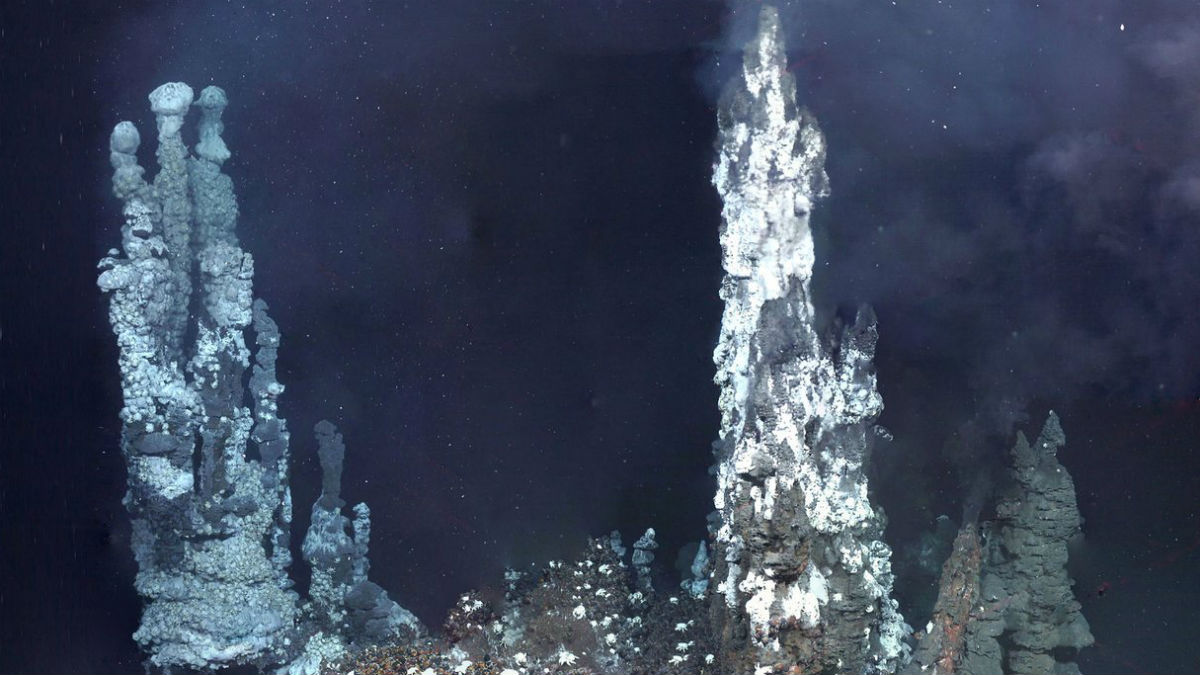Deep-sea gold rush: What you need to know
'Trillions' thought to lie beneath Atlantic, but experts warn of damage to ocean floor and marine life

A free daily email with the biggest news stories of the day – and the best features from TheWeek.com
You are now subscribed
Your newsletter sign-up was successful
The Gold Rush sent "forty-niners" flocking to California to seek their fortune in the mid-19th century. Now, hopeful prospectors are staking their claim on the ocean floor.
A UK expedition is the latest attempt to explore the potential of deep-sea mining, which could one day unlock trillions of pounds' worth of gold, as well as valuable manganese, cobalt and copper.
The RSS James Cook left Southampton on Thursday, bound for an underwater ridge in the Atlantic Ocean where volcanic hot springs have created huge stores of gold and other valuable metals more than two miles below the ocean's surface.
The Week
Escape your echo chamber. Get the facts behind the news, plus analysis from multiple perspectives.

Sign up for The Week's Free Newsletters
From our morning news briefing to a weekly Good News Newsletter, get the best of The Week delivered directly to your inbox.
From our morning news briefing to a weekly Good News Newsletter, get the best of The Week delivered directly to your inbox.
"They have left these incredibly metal-rich deposits as mounds on the sea bed, about the size of a big football stadium," expedition leader Bramley Murton, from the UK’s National Oceanography Centre, told The Guardian.
"The aim is to see whether they are a viable source of essential metals in the future, both in terms of economics and environmental sustainability."
Commercial extraction is expected to begin within five to ten years, he added.
How does it work?
A free daily email with the biggest news stories of the day – and the best features from TheWeek.com
Deep-sea mining is "extremely expensive and extremely difficult", Reveal reports, but rising costs of metals and advances in technology have made the prospect more appealing. Companies from the UK, France, Germany, China and Russia are among those snapping up licences for huge tracts of the ocean floor.
There are three main methods, each involving remote-controlled robots gathering minerals from under the water and delivering them to the surface: suctioning up manganese and iron clusters on the ocean floor; breaking up seafloor crust and piping it up to a ship, or collecting deposits near hydrothermal vents.
What are the drawbacks?
Although the RSS James Cook will only explore uninhabited hydrothermal vents, environmentalists are concerned future large-scale mining activity could interfere with the ecosystems around the hot springs and the creatures within them.
"Very little is known about deep-sea habitats, or the impact that mining operations will have on ecosystems and the wider functioning of our oceans," Greenpeace warns, urging expeditions to proceed with utmost caution.
"Because deep-sea species live in rarely disturbed environments and tend to be slow growing and late maturing… they are highly vulnerable to disturbance or even extinction."